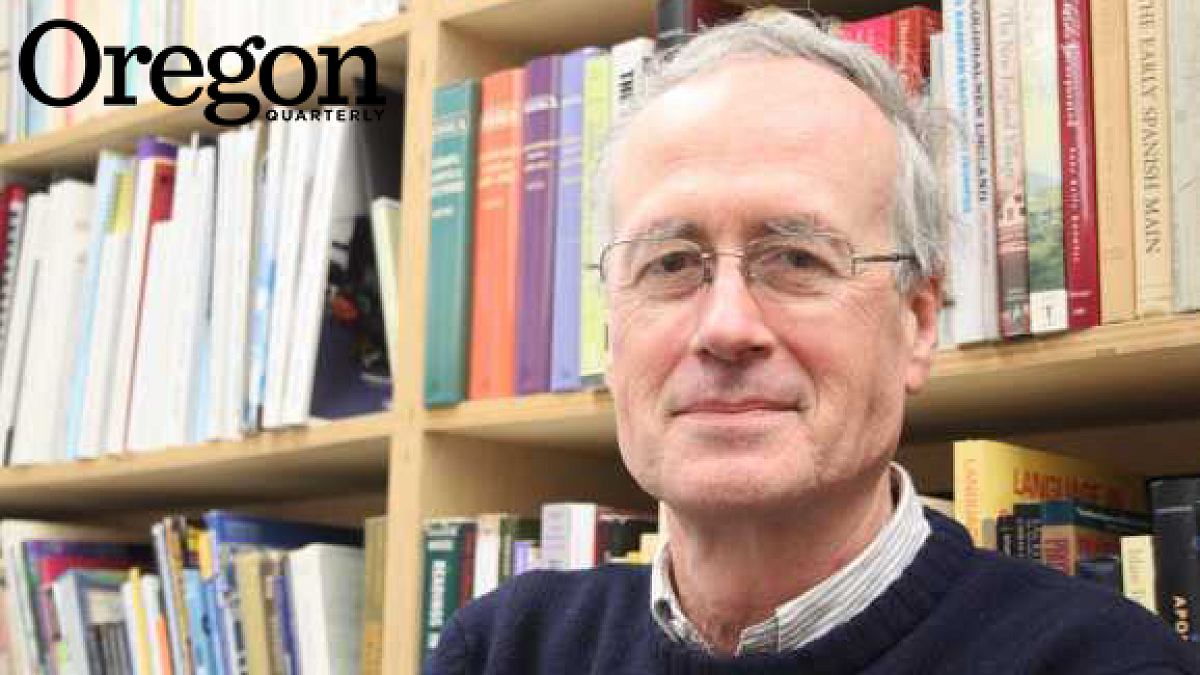The first few lectures in a course taught by Alexander Murphy can sometimes be a little intimidating for students. The renowned University of Oregon political geographer says that students often come into his classroom the first day believing they are there to memorize place names, but soon he manages to "change their views." With his aid and expertise, students discover that the political map is something more than just borders, capitals, and colored spaces; the subject encompasses information on a vast swath of human activity, from population density to religious affiliation. This new understanding gives students tools to embark on a journey of discovery, asking questions about their world—and no longer taking maps for granted.
One example Murphy likes to use is Timbuktu, a place that is synonymous with an isolated, faraway destination. This West African city is an important case study in how location can influence economies and politics through history. While Timbuktu seems distant to us today, Murphy says, in the 12th century it was an important caravan trade center on the edge of the Sahara. Then, as shipping became more prominent, coastal cities emerged as the new trade powers, and Timbuktu slid "from the center of activity to the periphery." Today, the city is making headlines, as the once stable nation of Mali has fallen into the throes of civil war. Timbuktu's changing geographic significance illustrates "a world that is different from one year to the next."
Having visited more than 100 countries, Murphy is often jetting to the farthest reaches of the globe. But whether he's traveling to Northern India or crossing the Peruvian-Chilean border, Murphy is always on the lookout for a tale or insight from his adventures to bring into his discussions and enliven his courses. On one recent 10-day expedition, he traveled to Tabriz, Iran, and addressed the Fifth International Congress of Islamic World Geographers. During the visit, Murphy sat down with a candidate for the post-Ahmadinejad presidency, an individual who might someday stand at the helm of one of the most strategically important countries on the planet. With the world's geopolitics ceaselessly churning, the subject remains ever fresh. "I look forward to the next time I get to teach political geography," Murphy says.
Name: Alexander B. Murphy
Education: BA '77, Yale University; '77–78, Graduate Program, Universität des Saarlandes; JD '81, Columbia University; PhD '87, University of Chicago.
Teaching Experience: Joined the UO faculty 1987. James F. and Shirley K. Rippey Chair in Liberal Arts and Sciences '98–present.
Awards: Thomas F. Herman Faculty Achievement Award for Distinguished Teaching, 2012; David M. and Nancy L. Petrone Scholar Award, 1996–98; James F. and Shirley K. Rippey Fund Award for Teaching Innovation, 1995–96; and many more university, national, and international accolades.
Off-Campus: Murphy enjoys hiking and, occasionally, downhill skiing with his graduate students at Willamette Pass.
Last Word: "I want my students to begin to see some connections and interactions that will help them to make sense of the world and their lives."
—By Brenna Houck


